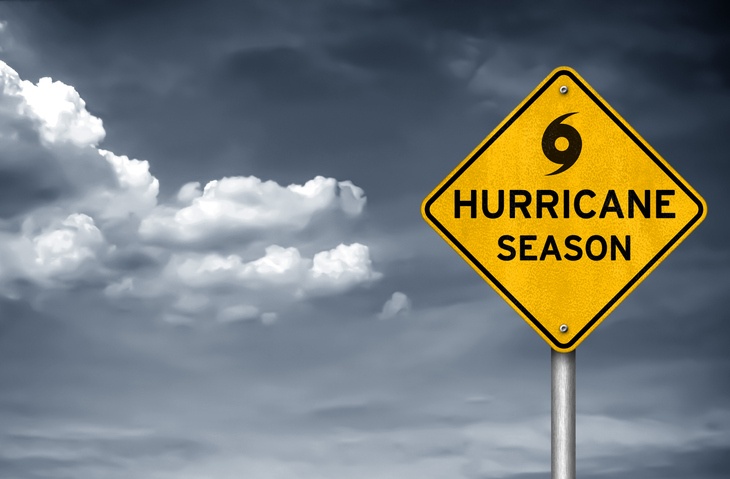Hurricane season is upon North America. The Atlantic season runs from June 1 to November 30, peaking from mid-August to late October. The Eastern Pacific season runs from May 15 to November 30.
The Atlantic Ocean, Caribbean Sea, and Gulf of Mexico are very active this time of year. In fact, 2020 has already broken the record for the most tropical storms before August 1 (there have been nine).
According to the National Oceanic and Atmospheric Research Administration (NOAA) in the U.S., the countries with the most hurricanes over the past 50 years are China, the Philippines, Japan, Mexico, the United States, Australia, Taiwan, Vietnam, Madagascar, and Cuba. In addition, other regions have monsoon seasons and cyclones.
While there is less travel these days due to the coronavirus, millions of people are still at risk for storm disruption during this season. Whether you are at home or living somewhere unfamiliar, there are steps you can take to stay safe.
- Local resources: Tap into government websites and preparedness resources in your area. These often provide warning system details, evacuation routes, and status updates during and after the storm. They may also list places to get essentials like water.
- Household preparation: By the time a storm’s strength is realized, many essentials may be in short supply. Stock up on water, shelf-stable foods, ice, and other staples ahead of time. If you need a generator, purchase one – and a supply of gas – while they are still available. Charge your electronic devices and back-up chargers. Gather flashlights and lanterns before you need them.
- Plan ahead for emergencies: If you have family members with unique needs, make a plan for those health issues. For example, if someone in your household is on oxygen, arrange for extra portable tanks that can be used in a power outage. If someone takes medication that must be refrigerated, prepare extra freezer packs to keep the medicine cool. Provided you have an idea of a timeline for the emergency (power restoration, e.g.), you might consider a hotel room in an area that has electricity. In extreme circumstances, evacuation may be warranted.
- Consider pandemic complications: COVID-19 precautions and restrictions turn storm response on its head. Cooling centers and charging stations are fewer and more risky than pre-pandemic. Neighbors helping neighbors – access to a hot shower or a cool place to sleep – becomes problematic. Affected residents need to change their usual post-storm behavior. Even the everyday issue of where to work can be challenging, with vastly more people working at home but searching for a place to plug in and power up. And rescues in flood-prone areas place people in close proximity out of necessity.
Planning ahead is the common theme here. Especially during this pandemic, do everything you can for your safety, health, and communication needs during a storm. Finally, patience and a positive attitude are valuable attributes in the best of times. In challenging times, they can make a huge difference for yourself and everyone around you.
Written by Ellen Harris, GMS, Product Manager, Content Group


